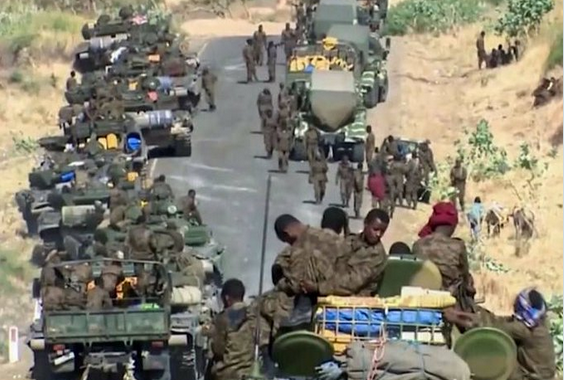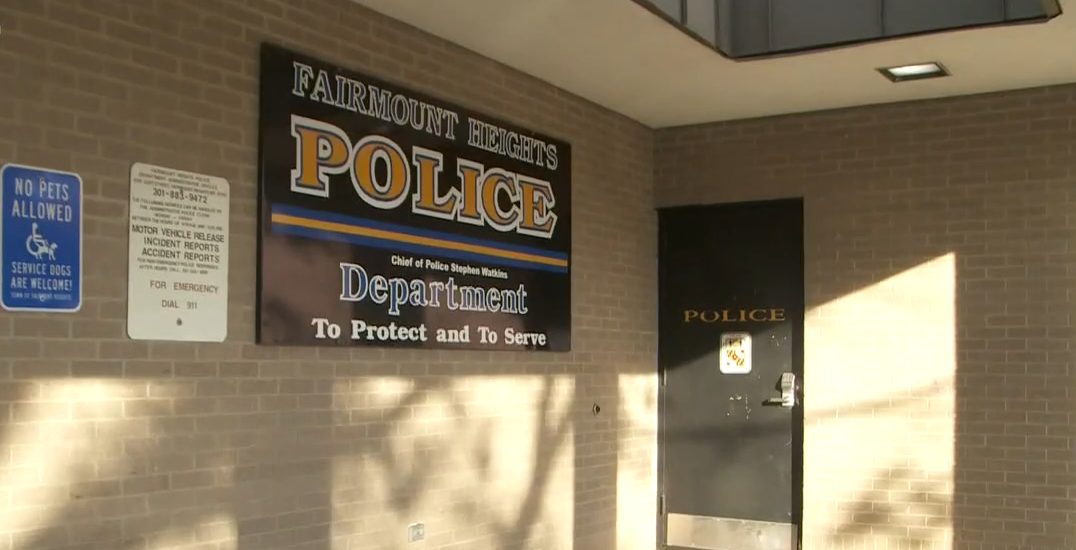Photos: Twitter
War is big, loud, significant and attracts an audience; media likes it. Foreign wars (commonly Middle Eastern or African) distract from domestic chaos and reinforce a long-held prejudice of savagery and race, and the opposite, equally false notion of western superiority.
In all conflicts mainstream media plays a crucial role, often inflammatory, feeding the discord through a particular narrative. Western media claims it is independent, but this is fallacious; corporate owned or State sponsored, it is conditioned by a particular world-view, ideologically/politically, nationalistically, historically.
After war erupted in Ethiopia in November 2020 western media have played a major role in spreading mis-/disinformation and, occasionally, outright lies. Together with foreign powers led by the United States, international human rights groups and elements within United Nations Agencies, they attacked and undermined the Ethiopian government.
Statements are issued and regurgitated in various outlets: BBC, CNN, France24, Al Jazeera, etc., seemingly without verification; the more often something is repeated, the louder the drumbeat of insistence on its truth (currently Ukraine where Putin has no intention of invading), no matter how incredible it may be. In November 2021 e.g., media carried the totally untrue story that TPLF forces were “200 km, or 400 km away from the capital Addis Ababa and could take the city in weeks”. Was this story spread in all innocence by the media; why would a responsible editor publish such information without checking it?
Such stories sensationalize events, build tension and attract public attention. In Ethiopia they falsely portrayed the terrorist Tigray Peoples Liberation Front (TPLF) as an ascendant force, the Ethiopian government as cruel and desperate, their forces deflated and inadequate.
The war was triggered by the TPLF’s preemptive attack on Federal Army bases on 4 November 2020; uncounted soldiers were killed, arms stolen. This fact (and the terrorist nature of the TPLF), is routinely disregarded by international media, and western governments, despite various TPLF spokespeople admitting it.
Imagine the outrage if such an assault took place against a western military base: there would be widespread fury, a sharp retaliatory response—or a protracted “war on terror”—unanimous support from allies, and wall-to-wall anger across the media. But, instead of condemning the terrorists, the U.S. attacked the Ethiopian government, legitimized the TPLF, demanded PM Abiy Ahmed enter into negotiations with it. Again, would any western government be expected to negotiate with a terrorist gang that had carried out an act of treason? The hypocrisy, condescension and, yes, racism of the “international community” (the U.S. and her bedmates), former or decaying imperialists, knows no limits.
Manufacturing consent
An influential voice in the build-up to the conflict and a regular voice of media dis-/misinformation once fighting started, was the International Crisis Group (ICG). In a report published May 2021, Disinformation in Tigray—Manufacturing Consent for a Secessionist War, New Africa Institute (NAI) detail that, ICG “played a critical role in driving the world to believe that TPLF had the upper hand in any ensuing conflict”.
A week before the TPLF attacked the Northern Command ICG published, Steering Ethiopia’s Tigray Crisis Away from Conflict, stating, Tigray’s “well-armed regional paramilitary force is led by former national army generals.” It also boasts a large militia full of war veterans. TPLF leaders say that many officers in the units of the Northern Command…would not be likely to support any federal intervention, and some could even break and join Tigray’s forces.” Such material, it is believed, emboldened the TPLF to launch their deadly attack, plunging Ethiopia into chaos.
NAI detail the extraordinary level of falsehoods, distortions and errors perpetrated by media; the dis-/misinformation campaign, they make clear, was an attempt “to manufacture consent for an unpopular irredentist, ethnic secessionist war that could not be justified in the eyes of the international public through honest reporting.” For Ethiopians it has been devastating, but within the halls of western power—Washington, mainly, but also London and, though less so, Brussels, it appears it was welcomed. A chance to destabilize not just Ethiopia under PM Abiy Ahmed, seen as too independent and potentially influential, but the Horn of Africa more broadly. The US and co. supported the TPLF politically, diplomatically and, many believe, militarily from the outset; mainstream news outlets obediently followed suit.
Media may refute the assertion of a conscious campaign of support for the TPLF; however, given the breadth of material published that either attacks the government, misleads the public or supports the terrorists, it is hard to deny.
Initially, a common excuse for the appalling coverage was the “communications blackout”. The Washington Post went as far as to blame the government for the dis-/misinformation, saying, “by blocking communications and access to Tigray, the [Ethiopian] government helped create conditions where disinformation and misinformation can thrive.” They only “thrive” if journalists/editors don’t do their jobs and check their material.
The menu of mis-/disinformation varies from the seemingly innocuous, e.g. describing the forced retreat of the TPLF to Tigray in December 2021, as a “withdrawal” (similar to reporting of the 2021 Gaza assault by Israel, in which BBC said X number of Palestinians had died and Y number of Israelis had been killed), to false accusations of “massacres, mass rape and sexual violence, looting, extrajudicial killings, genocide, ethnic cleansing and war crimes.” Savage portrayals of Ethiopian and Eritrean forces—drawn into the conflict after the TPLF bombed the capital Asmara—that NAI make clear “draw on old colonial tropes of Africans.”
The oft-repeated media claims of rape and gang rape by Ethiopian Federal Forces and Eritrean soldiers feed into this perverse notion of primitive Africans. Sexual and gender based violence was highlighted in the United Nations High Commissioner for Human Rights (OHCHR) and the Ethiopian Human Rights Commission (EHRC), joint report, 3 November 2021. Premature and partial, it is full of generalized accusations of criminality.
Whilst admitting it is not an “exhaustive record of all relevant incidents”, its authors asserted that violations were committed by all parties to the conflict, including rape/gang rape. Assertions disputed by the Ethiopian government (which has said it will investigate) and refuted in Eritrea, where there is no culture of rape/gang rape, among society or the military. Within the TPLF however, rape/gang rape is part of its modus operandi.
TPLF military/para-military committed rape in the Ogaden region e.g., over a 25 year period of suppression of the ethnic Somali population. The same abuse took place against Oromo women for decades, and long before the conflict started in Tigray rape was a serious problem throughout the region; in 2019 a leading activist, Meaza Gidey tweeted: “rape culture is ubiquitous in Tigray oftentimes stigmatizing & shaming female rape survivors into marrying their rapist.”
While Tigray was in total chaos, on 11 February, 10 prisons in the region were emptied of all inmates. EHRC report that paperwork on the prisoners was destroyed, making, “Tracking major offenders nearly impossible and that it is one of the causes for the substantial increase of … major crimes.” The increase was so pronounced that the TPLF-mouthpiece Tigrai Media House (TMH) admitted that, “TPLF itself was responsible for the rise in crimes.” NAI report the TMH statement: “When news broke out that the Ethiopian army was making its way to Mekelle, the Tigray regional police forces and the prison forces disbanded abandoning their posts. As a result of this, the prison doors were left open and all the hardcore criminals escaped into the community.”
None of this information was reported by western media; misrepresentation through omissions, like this, has been widespread throughout.
Another example is the absence of coverage or condemnation of the Mai Kadra Massacre, one of many such TPLF atrocities. In November 2020 the village of Mai Kadra was the scene of a brutal attack by TPLF militia, the Samri and Tigrayan special police forces. The EHRC found that, “Samri, …local police and militia….killed hundreds of people beating them with batons/sticks, stabbing them with knives, machetes and hatchets and strangling them with ropes.” This atrocious, ethnically motivated attack, EHRC states, “May amount to crimes against humanity and war crimes.” The massacre was largely overlooked by mainstream media and ignored by foreign governments; after all, those slaughtered were savages—poor (black) Africans, murdered by other poor (Black) Africans.
Mai Kadre is included in the OHCHR/EHRC report, though estimating the deaths at 200, in contradiction to the 600+ Amnesty International say were murdered. To “balance” this appalling atrocity the report refers to a highly disputed incident by the Ethiopian Defense Force (EDF) in Axum, where it is claimed more than 100 people were killed. Despite the fact that there is no evidence of such an attack and no bodies have ever been discovered the story was all over mainstream media.
Then there is the oft-repeated claim that the Abiy government blocked humanitarian aid to Tigray. In January 2021 The Economist announced that food was being used as a weapon by the government, and quoted that the US run Famine Early Warning Systems Network, saying that, “parts of central and eastern Tigray are probably one step from famine.” There was no famine (terrible hardship as in all war zones, yes), and according to Ethiopia’s National Disaster Risk Management Commission, by May 2021 all 4.5 million Tigrayans in need of food had received assistance, 70% of it subsidized by the government.
The whole area of UN humanitarian work was polluted by TPLF moles, including within the World Food Programme (WFP). In October 2021 whistleblowers from UN Ethiopia revealed that the “TPLF……. have networks within UN system.” In an attempt to purge the organisation of TPLF infiltrators on 27 September the Ethiopian government expelled seven UN officials for, “Dissemination of misinformation and politicization of humanitarian assistance;” the “diversion of humanitarian assistance to the TPLF; Transferring communication equipment to be used by the TPLF;” and, unbelievably, “reticence in demanding the return of more than 400 trucks commandeered by the TPLF for military mobilization and for the transportation of its forces since July 2021.” None of this was reported by international media or commented upon by the U.S. administration, or any other western government.
The spirit of unity
The examples of betrayal and western media dis-/misinformation over the course of the conflict are endless. The sources of material and the way stories evolve and become disseminated is often convoluted, facts ignored, evidence found wanting, or manufactured entirely, as with the so-called “Axum massacre”, examined in detail by NAI. Various players, including Europe External Program with Africa (EEPA), where it apparently originated, and discredited ex-BBC Africa journalist Martin Plaut, contributed to a concocted narrative, accepted by Amnesty International and forming the basis for a human rights report.
A positive consequence of the west’s betrayal has been the heartening community spirit engendered among Ethiopians. Divided for decades by manipulative TPLF ethno-policies, Ethiopians, at home and abroad, have united against this group of self-supporting interconnected adversaries: The terrorist TPLF, “The West”, specifically the United States and the international mainstream media.
And now, as the fighting subsides and the country collectively draws breath the work of reconciliation and healing must begin.
To this end, in the hope of facilitating “national reconciliation”, PM Abiy announced the extraordinary step, which angered many Ethiopians, of granting an amnesty for some of the country’s most high-profile political prisoners and parliament has established a “Commission for National Dialogue”, “to pave the way for national consensus and keep the integrity of the country.” Despite the TPLF and their partners in crime, the Oromo Liberation Front (OLF), refusing so far to participate, this is encouraging.
Ethiopia has suffered terribly over the last year or so, and it will take time to recover. But, if the sense of national unity that has been created over the past year or so is maintained, healing will come more readily and this wonderful country will emerge stronger than ever.
Graham Peebles is a British freelance writer and charity worker.








